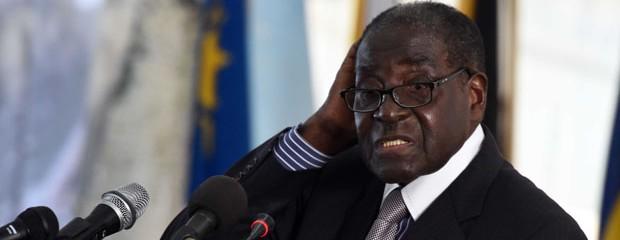Survival and Governance in Sudan’s Frontiers: A Review of Two Recent Books
Two new scholarly books help us understand how people in Sudan’s peripheries survive—or don’t—and place the frontierland governance in a deep historical context. One is Wendy James’s ethnography of the Uduk people of Blue Nile during the last two decades of war and flight, and the other is Martin Daly’s history of Darfur.
 Wendy James‘s three books on the Uduk people of southern Blue Nile, a frontier area of northern Sudan that abuts both southern Sudan and Ethiopia, describe not only how the Uduk people have been transformed by war and forced displacement—and yet have retained and even rediscovered important parts of their collective identity—but also how discipline of social anthropology itself has been transformed over the same time period. When Prof. James first worked with the Uduk in the 1960s she wrote ethnography in the classic style. The third part of her trilogy, War and Survival in Sudan’s Borderlands: Voices from the Blue Nile, is a mixture of ethnography, contemporary history and rapportage, exploration of historical sources, and humanitarian engagement.
Wendy James‘s three books on the Uduk people of southern Blue Nile, a frontier area of northern Sudan that abuts both southern Sudan and Ethiopia, describe not only how the Uduk people have been transformed by war and forced displacement—and yet have retained and even rediscovered important parts of their collective identity—but also how discipline of social anthropology itself has been transformed over the same time period. When Prof. James first worked with the Uduk in the 1960s she wrote ethnography in the classic style. The third part of her trilogy, War and Survival in Sudan’s Borderlands: Voices from the Blue Nile, is a mixture of ethnography, contemporary history and rapportage, exploration of historical sources, and humanitarian engagement.
War and Survival recounts in vivid depth the ordeals undergone by a small community that found itself in the frontline of Sudan’s civil war, whose members were scattered north to Khartoum, south to Southern Sudan, and east to Ethiopia. In some cases they were displaced violently multiple times, in remarkable long treks through mountain, savanna and swamp. Members of the Uduk community fought in several different armies—at some points, on opposing sides in the same battles (an opposition that didn’t prevent them communicating). It is both a personal account of what it means to live and die during such trauma, and a historically and sociologically informed ‘thick description’ too. Some of the incidents sound as though they could have come from the days of turmoil and enslavement of the 19th century, such as the story of one Uduk boy who with his younger sister, rolled down an escarpment while his family was fleeing a gunbattle. The two children were presumed dead and abandoned, but in fact the boy survived and was brought up as an adopted son by a family from the Bertha ethnic group. Years later, he was determined to discover his real—but wholly unknown—identity, with the sole clue to his origin consisting in a wooden back-board (like a rucksack) which Uduk children use to carry their infant siblings. James’s account breaks off just before he was reunited with his mother.
War and Survival is a treasure trove for those wanting to understand what wars in Sudan really mean to the people who are trampled by them. One of the themes that emerges strongly is that the Uduk people tend not to assess an individual in a position of authority by which side he took in the war, but by his personal behavior—decency or cruelty when he had the power of life or death over people in his charge. A fair number of young Uduk lads joined the Sudan army or police, as a means of gaining employment or authority—and were regarded by their community not as traitors or sellouts, but as representatives within a power structure that would never be accountable to them, but might at least occasionally treat them with mercy. One of the military commanders with the worst reputations in Blue Nile—an ‘Arab’—also turns out to have had an Uduk mother. Not rehabilitated, he is at least understood.
Another theme is that the disruptions visited upon the Uduk—with the appalling levels of bloodshed and starvation—are a reprise of history that has been incorporated into the people’s cultural archive. In the 19th century, the Uduk lived in the marchlands between two aggressive empires, Sudan and Ethiopia, both of which regarded peripheral peoples as commodities to be enslaved, or vermin to be hunted. At the time of James’s first stays with the Uduk in the 1960s, these seemed like foundational myths or ancient history—but subsequently came to have much greater resonance. James’s command of the Uduk vernacular and her long personal history with the people allows her to record and interpret their songs, dances, stories and sermons while in flight or in exile with subtlety and insight, showing how identity is preserved under stresses that, to a casual observer, might seem to be sufficient to dismantle a society altogether. This is a remarkable book—anyone wishing to understand the experience of war or genocide, especially in Sudan, should study it.
More is available at the website, Voices from the Blue Nile.
 Martin Daly is the premier historian of Sudan’s colonial period. He has written the two definitive English language books on Sudan under Anglo-Egyptian rule, based on a familiarity with the archives rivaled only by the late Sudanese archivist Prof. Mohamed Abu Salim. Using the archival sources—though not, unfortunately, the local Darfur archives, most of which went missing years ago—Daly has written an excellent history of Darfur, Darfur’s Sorrow. Its subtitle ‘a history of destruction and genocide’ is misleading. It is in fact a history of two intertwined themes—Darfur’s neglect under the British and the intrigue and power games of a periphery.
Martin Daly is the premier historian of Sudan’s colonial period. He has written the two definitive English language books on Sudan under Anglo-Egyptian rule, based on a familiarity with the archives rivaled only by the late Sudanese archivist Prof. Mohamed Abu Salim. Using the archival sources—though not, unfortunately, the local Darfur archives, most of which went missing years ago—Daly has written an excellent history of Darfur, Darfur’s Sorrow. Its subtitle ‘a history of destruction and genocide’ is misleading. It is in fact a history of two intertwined themes—Darfur’s neglect under the British and the intrigue and power games of a periphery.
Anyone wanting to learn how Darfur was kept in a reactionary Orientalist time warp during 38 years of British rule should read this book. Daly describes how the ‘native administration’ system of rule by just a handful of colonial officers presiding over local chiefs was deliberately engineered to sustain backwardness. Darfur had virtually no schools or clinics, as a matter of policy, until well after World War II. The gift of local despotism—centralized executive and judicial powers, plus a fair amount of latitude for interpreting tradition—to chiefs, maintained a system that was not only stable, but incapable of change. It is ironic that the native administration system is now heralded as one of the best hopes for Darfur’s stability.
Daly’s account is strongest in recounting Darfur’s two episodes of rule from Khartoum—the brief Turko-Egyptian and Mahdist occupations and the years of British imperial rule. There are clear continuities. Both Ottomans and Mahdists maintained Darfur as a ‘military province,’ denying it the civil administration reserved for the ‘metropolitan provinces’ of the Nile. Since the 1980s, post-colonial governments have reverted, undeclared, to the old military-metropolitan divide. State of emergency have been in place in Darfur for most of the last twenty years, and Military Intelligence, far more than the civil governance structures, are the power in the land.
It’s a commonplace of Sudanese political analysis that governments play ‘divide and rule’ and manipulate the provincial elites. What of the strategies of those peripheral rulers to maintain their own bailiwicks amid the competing demands and pressures of faraway capitals, and the intrigue and turmoil within those distant elites? Daly gives some tantalizing glimpses into Darfurian chiefs’ very considerable survival skills. For example, how could a Gimir sultan, in the furthest periphery of Sudan, stay in power throughout Egyptian and Mahdist rule, a restored Fur sultanate, French territorial designs, and British conquest? Frustrated British administrators coined the term ‘tajility,’ from the Arabic tajiil (to delay), to describe the capacity of frontier chiefs to preside over their bailiwicks using canny pre-emption, calculated indecision and equivocation. United Nations and African Union diplomats in Sudan today are considering reintroducing the term.







As a native from southern Blue Nile (Uduk land) I greatly wondered whether I will once have information such as Wendy’s about my homeland stories and events. I am very grateful to those wonderful people scholars who have given us a hope to feel and aspire.